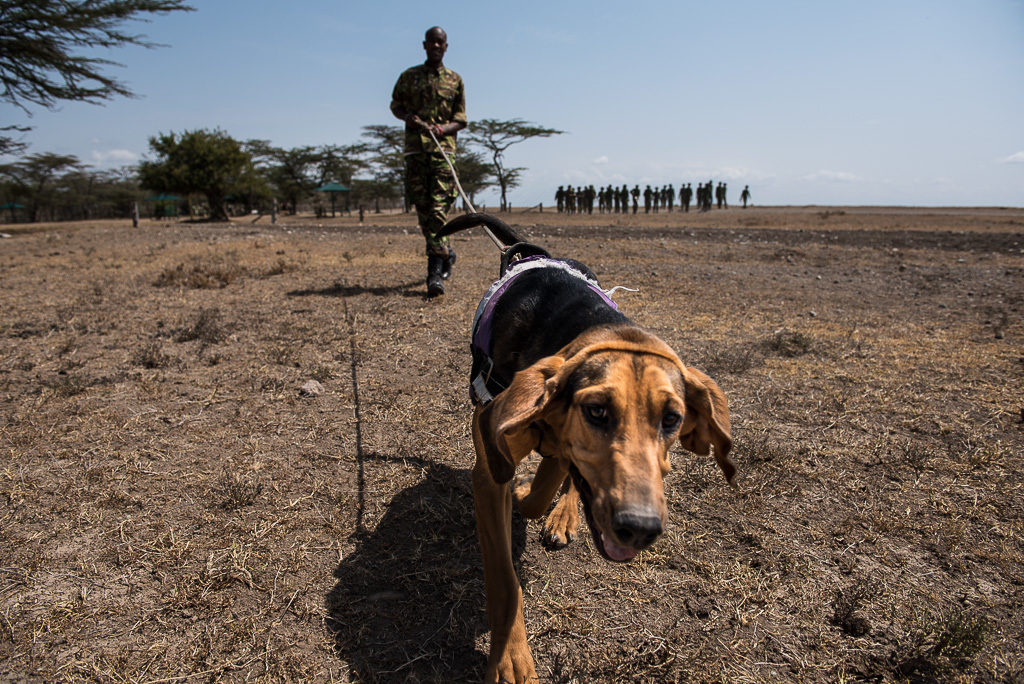Dog squads have sprung up across African countries as an effective tool in fighting rhino poaching. Dogs can be trained to track down poachers for 48 hours, covering large distances across difficult terrain and in testing conditions, often with heat spiking up to 50 degrees Celsius. Side by side with rangers, they can apprehend criminals and help protect our rhinos. Dogs can also detect rhino horn at roadblocks or airports, helping to stop trafficking of the rhino horn and deter any illegal activity.
The proven effectiveness of both detection and tracking dogs as a tool in the fight against rhino poaching has led to a marked increase in canine units in a number of African countries. However, many of these programmes work in isolation from each other, with little information sharing across borders.
To address this challenge, we have funded and co-ordinated the Working Dog Workshop in Johannesburg, where 40 delegates from 13 different countries have joined me to share their knowledge and learn from each other’s experience of effectively operating their K9 units to protect Africa’s wildlife.

Group photo from the Working Dog Workshop Johannesburg 2018. Credit: Save the Rhino International.
We addressed a number of key issues during the four days of the Workshop. The first day we discussed the basics of starting and maintaining healthy dog squads: kennels, equipment, nutrition and veterinary care. The second day we focused on issues of training detection and tracking dogs, and motivating handlers to do their jobs well despite inevitable challenges. Tomorrow we will share our experience of deploying dogs in live environments, while on the final day we will debate how best to use canine evidence in law-enforcement, helping to put criminals behind the bars.
So far, the Workshop has highlighted the fact that despite different challenges and the varying environments canine units operate in across the continent, we all share the same goal: we want to train our dog squads as best as we can to protect our wildlife and apprehend poaching syndicates.
Dogs can play an enormous role in protecting our wildlife, but we need to remember that they are not machines. Dogs can’t be operated on a push of a button. They are not a weapon that we can fire anytime and anyplace. Dog teams are only as effective as they are trained to be. The hard work rests with the handlers who train their dogs to persevere, and successfully track down poachers or discover valuable evidence that can one day help lock up criminals involved in the illegal trade. The success of dog squads deployed across Africa is determined by the skills, motivation and abilities of those training them to track, deter, and apprehend poachers before they have a chance to destroy what is left of our wildlife.









